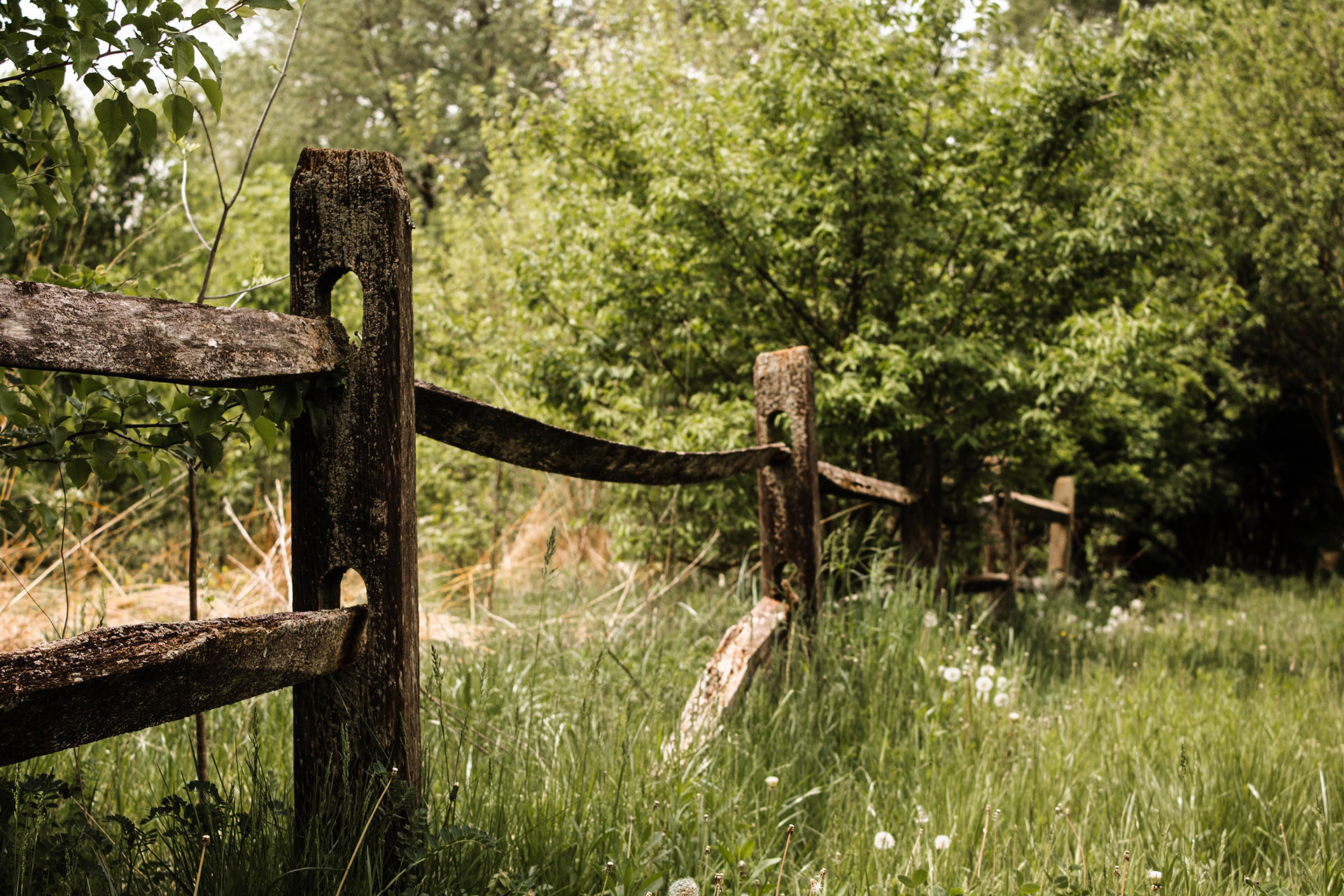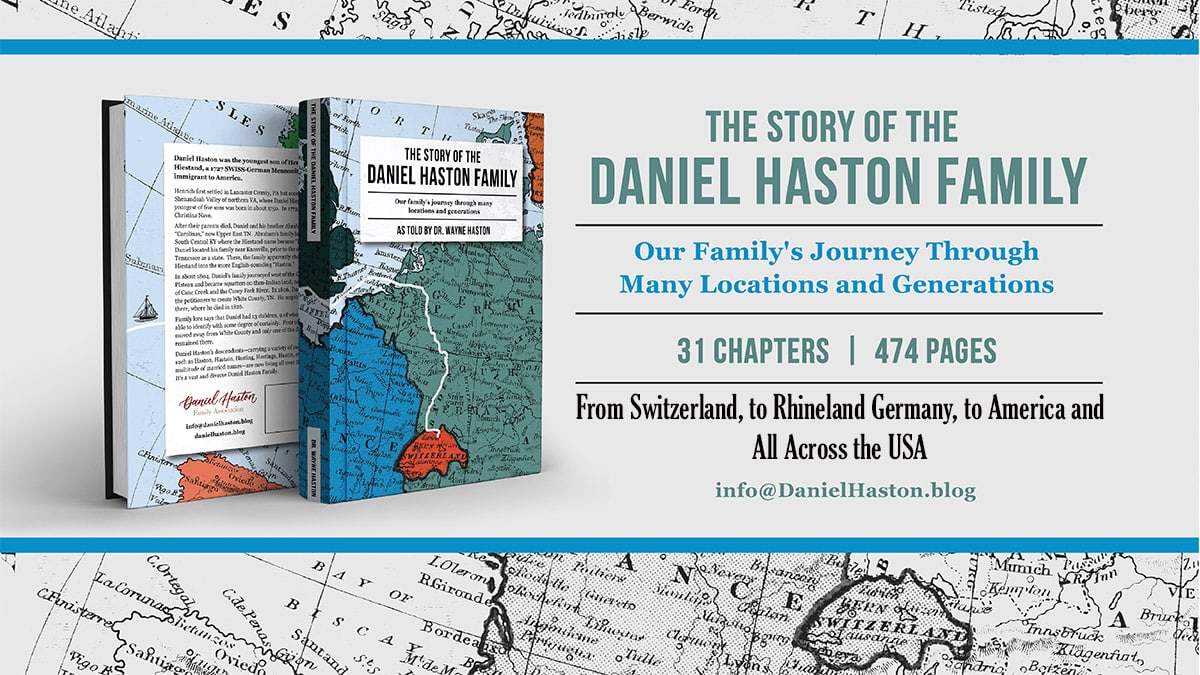25 - Another of Daniel Haston's Boys in Trouble
Joseph and the Broken-Down Fence

Let’s start with a couple of definitions, for those of you who may not know what “Timothy” is or a “close,” because this story is all about a “timothy close,” some hogs, and a son who was just following his father’s orders.
If you grew up on a farm, you know what “timothy” is–it’s a kind of hay. Timothy hay is high in fiber and generally is easy to digest. It tends to be more expensive than the other grass hays, but it is also higher in nutrients than other grass hays. It is used most often as cattle and horse feed.
“Close” is an old word used for a lot or a small field. So, a “timothy close” was a lot where timothy hay was grown.

Samuel Cowan had a timothy hay lot adjacent to the lot that Daniel Haston’s family lived on “south of the Holston River, opposite Knoxville” in 1800. Cowan was an important man in Knoxville – he ran a mercantile store and was a big shot in the little pioneer village of Knoxville.
One day in the summer of 1800, Daniel Haston told his 20 year old son Joseph to tear the fence down that they (the Hastons) had built on their rented lot. So Joseph, being an obedient son (like ALL Haston sons!) did what his father told him. The only problem was that Daniel’s hogs got into Mr. Cowan’s timothy hay lot and trampled around in it.
So on August 14, 1800, Samuel Cowan filed a complaint against Joseph and hired Hugh White as his attorney to prosecute Joseph Haston. Who was Hugh White? Later, he would become a Tennessee Supreme Court Justice, a U.S. Senator, and an 1836 candidate for President of the United States (he won Tennessee by a landslide, but lost to Martin Van Buren).
27 Seconds Video
Daniel (Joseph’s father) and David (Joseph’s brother) signed a $2,000 bond assuring that Joseph would show up for the trial. Cowan was asking for $1,000 for the damages. Gulp!
Sheriff Robert Houston was called as a witness for Joseph, as well as the owner’s agent for the lot Daniel was renting, James Charter. Drury W. Breazeale was Joseph’s attorney. After both attorneys presented their cases, the jury:
who being elected, tried and sworn the truth to speak upon the issues joined upon their oath do say the Defendant is not guilty as in pleading he hath alleged.
Furthermore: Therefore it is considered by the Court that the Plaintiff take nothing by his Writ but for his false clamor be in Mercy etc and that the Defendant go thereof without day and recover against the Plaintiff his cost by him about his defense in this behalf expected.
Oh, by the way, Samuel Cowan died about a year later.
Joseph Haston and his attorney “bested” Hugh Lawson White, one of the most famous attorneys in early Tennessee and a future U.S. Presidential candidate!
If you appreciated this article, please share it with others who might also enjoy it.

